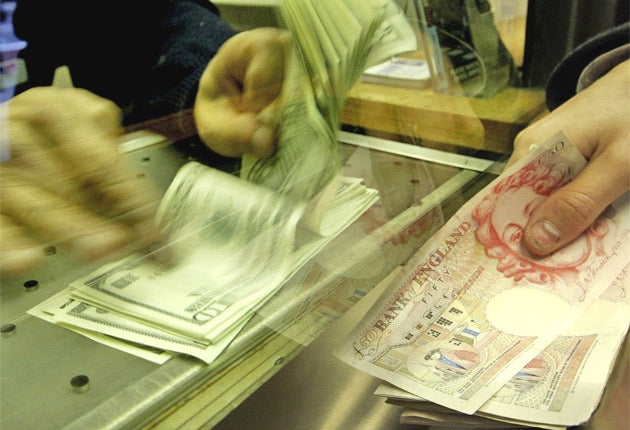Watchdog complains over currency 'rip-off' for holiday-makers

Holiday-makers are ripped off every time they take out foreign currency or spend abroad, according to watchdog Consumer Focus. It has today launched a super-complaint into the £1bn travel money industry.
The watchdog wants the Office of Fair Trading (OFT) to investigate potentially unwarranted and excessive currency charges. Mike O'Connor, chief executive at Consumer Focus, accused the travel money industry of having "a confusing array of hidden charges". A super-complaint can be made by a state-approved consumer organisation.
The cost of changing sterling into euros varies wildly. "Converting £500 into euros can cost from under £10 to over £30," pointed out Mr O'Connor. "This is a huge difference for essentially providing the same service."
Holiday-makers are also stung by cash withdrawal charges if they use plastic cards to buy currency. They are effectively charged for the privilege of taking money out of their own account, said Mr O'Connor.
The charges do not reflect costs. A debit card payment costs on average 9p to process and a credit card payment just 37p, yet charges for buying currency with a card are typically 1.5-2 per cent of the amount converted, up to a ceiling of £4.50.
There are also complex charges applied to cards, which typically have surcharges of up to 3 per cent on the exchange rate offered, known as exchange-rate loading.
There may also be a £4.50 charge for using foreign ATMs, as well as cash advance charges and higher interest rates for using a credit card. The watchdog also slammed the use of misleading marketing phrases such as "0 per cent commission". It said exchange rates already include mark-ups levied by suppliers and so are not as fee-free as implied.
Stephen Heath, chief executive of FairFX, launched a campaign to outlaw 0 per cent commission ads. He welcomed the super-complaint. "One cause of confusion about charges is the misleading advertising tactics adopted by the most popular travel money providers such as the Post Office," he said.
Sarah Munro, head of Post Office Travel Money, said: "At the Post Office there are absolutely no hidden charges."
Meanwhile the British Bankers' Association defended the charges. "Any analysis of this market needs to take account of the costs of providing these services," a spokesman said.
The OFT must respond within 90 days either by launching its own investigation, referring the complaint to another body such as the Competition Commission, or resolving the issues.
Tricks of the trade
The key when changing currency is how many euros you get for your pound. But you may have to add in commission, administration fees, and often a delivery charge. Commission-free deals can seem the best option as what you see is what you get, but the exchange rate paid is often paltry in return. Yesterday, for instance, online sterling-euro rates varied between 1.0831 and 1.1267: change £500 at the wrong place and you'd get 22 euros less. But delivery charges can be up to £5, evening things out. If you buy in high street stores, rates slump even lower. Last month when online rates topped 1.12, commission-free Post Office branches offered 1.07, or 1.05 if you changed less than £500.
Subscribe to Independent Premium to bookmark this article
Want to bookmark your favourite articles and stories to read or reference later? Start your Independent Premium subscription today.

Join our commenting forum
Join thought-provoking conversations, follow other Independent readers and see their replies